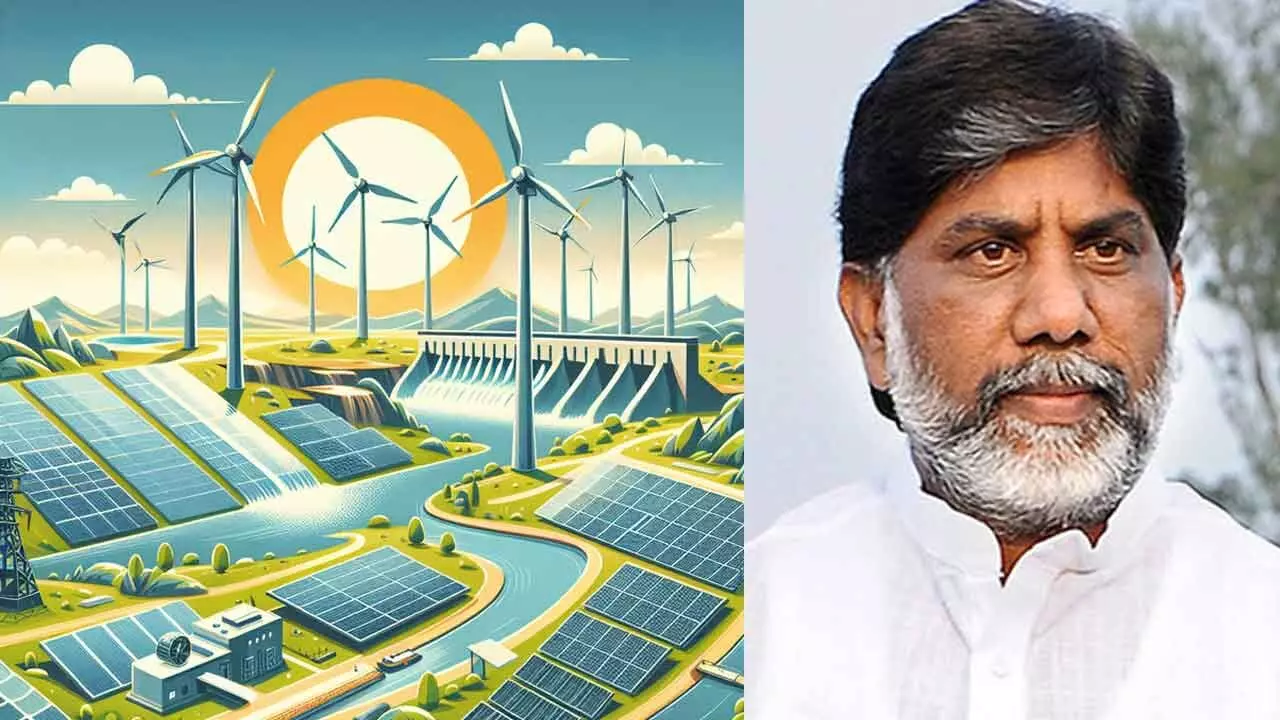TG Govt Aims To Add 20K-MW RE By 2030
Current renewable energy capacity at 11,399 MW includes 7,889-MW solar energy and 2,518-MW hydro energy
TG Govt Aims To Add 20K-MW RE By 2030

With various mega infra projects such as Future City and Pharma City being taken up, the State is expected to drive an exponential rise in peak electricity demand, from 15,623 MW in FY24 to 24,215 MW by FY30 and 31,809 MW by FY35 - Mallu Bhatti Vikramarka, Dy CM, Telangana
Hyderabad: Considering the future demand growth for the energy, the Telangana State has decided to add 20,000MW to its existing over 11,000 MW renewable energy (RE) generation and storage capacity by 2030, said Deputy Chief Minister Mallu Bhatti Vikramarka, while stating that the State government will soon come out with ‘Clean and Green Energy Policy-2024’
In a stakeholders meeting on the proposed Telangana Clean and Green Energy Policy-2024, Bhatti said in order to achieve the target, the State would focus on standalone renewable energy projects, innovative solutions such as floating solar, waste to energy and green hydrogen.
Later, addressing mediapersons here on Friday, Bhatti said the new policy will be innovative and effective. He said the proposed policy will be discussed in the State Cabinet and released soon.
Earlier speaking in the meeting, the Dy CM said: “Telangana is targeting to achieve an additional 20,000MW of renewable energy and storage capacity by 2030,” he said. The current renewable energy capacity, which stands at 11,399MW, includes 7,889 MW of solar energy (excluding distributed renewable energy) and 2,518 MW of hydro energy, among others.
He further added that with various mega infra projects such as Future City and Pharma City being taken up, the State is expected to drive an exponential rise in peak electricity demand, from 15,623 MW in FY24 to 24,215 MW by FY30 and 31,809 MW by FY35. It is essential that this demand is met with clean, reliable, affordable, and sustainable energy solutions, he further said.
The new policy, among other facilities, proposes reimbursement of net SGST (State GST), stamp duty, transmission & distribution charges, and waivers on electricity duty. According to the policy, these incentives will significantly reduce the cost burden on developers, ensuring financial viability and encouraging large-scale investments.

